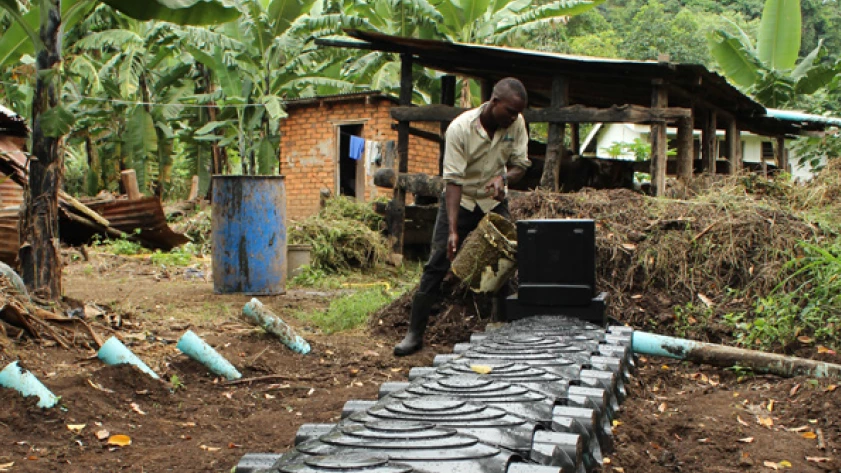
Sub-Saharan Africa continues to suffer from a major energy deficit, with hundreds of millions of people lacking access to electricity and clean cooking fuels. There is a great need for innovative mechanisms that can help families access clean and affordable energy. The Carbon Initiative for Development (Ci-Dev) is one such mechanism.
A $125 million fund with a pipeline of 14 pilot projects in Africa, Ci-Dev will help improve living standards and sustainable energy through results-based finance. Along the way, it will generate valuable lessons in how reducing greenhouse gas emissions can generate tangible development benefits for local communities, like cleaner air, improved safety, and financial and time savings.
These lessons can help in the delivery and scale up of innovative climate finance business models.
Today, we signed Ci-Dev’s first emission reductions purchase agreement for a project in East Africa that produces low-carbon, cutting-edge biodigesters. The purchase agreement is with SimGas, a Dutch private company that manufactures plastic-molded biodigesters at a state-of-the-art facility in Tanzania, for sale to rural households in Kenya and elsewhere in the region.
Through mass-manufacturing and lower transportation and installation costs, the project offers high quality and lower cost clean cooking options for households – making these biodigesters cheaper, easier to install and transport to rural areas. The project will provide more than 75,000 families in Kenya with a turnkey solution that includes biogas stoves along with the biodigesters.
SimGas biodigesters convert manure into biogas – a clean cooking fuel – and produce a nutrient-rich bio-slurry that can be used to fertilize fields or kitchen gardens. Families spend less money on fertilizers, traditional fuels like wood, and other energy sources like LPG. It frees up time for women and children who many times are sent out to collect fuel wood. Biogas also eliminates harmful indoor smoke from cooking with wood, reducing respiratory illnesses.
Traditional biodigesters are made of masonry and need an entire team of masons to make them. The advantage of these modern biodigesters is a design that is modular, scalable and manufactured from recycled plastic components that can be easily transported and installed in a single day.
Because the project helps lower greenhouse gasses – specifically carbon dioxide emissions from burning fuel wood – the project will generate emission reductions that will then be sold to Ci-Dev, creating a revenue stream for the project. These results-based payments for carbon will subsidize the retail price of the biodigesters, making them more affordable to poor households, and offer an extended five-year warranty to improve consumer confidence. Hopefully, this will boost early sales of this brand-new technology and help scale up the effort – making these biodigesters available to more people.
In October, we visited villages in rural Kenya where families are using just two or three heads of cattle to fuel the biodigesters with their manure. One woman we spoke with told us that her son had left the tea water boiling and how, in the past, this would have used up an entire LPG gas canister, at great expense. With the biodigester, all she had to do was just wait a few hours for it to generate biogas, and she could start cooking again. And families proudly presented their banana trees, which they claimed produced higher yields than before thanks to the fertilizer generated by the biodigesters.
Other farmers we spoke to told us that their neighbors are seeing how well the biodigesters are working and are now installing them. In fact, we counted that up to five households were picking up the idea from just one user.
These are some of the valuable lessons that we will collect and share over time, for use in other countries by professionals in the energy access and climate finance fields. Ci-Dev will also continue to help streamline the Clean Development Mechanism (CDM) – by which emission reductions are monitored, verified and certified before being purchased by buyers like Ci-Dev – to make results-based climate finance more accessible to those who need it the most.
Following the Paris Agreement, our experience in helping to simplify the CDM can be even more relevant. Because some of its projects may call for purchases of emission reductions beyond 2020, Ci-Dev can provide lessons learned and help inform the market mechanisms called for in the Paris Agreement.
We are eager to put these to the test in Ci-Dev’s pilot projects and to find out how its results-based payments can contribute to increasing energy access and providing development benefits – starting with better biodigesters to families in Kenya.


Join the Conversation